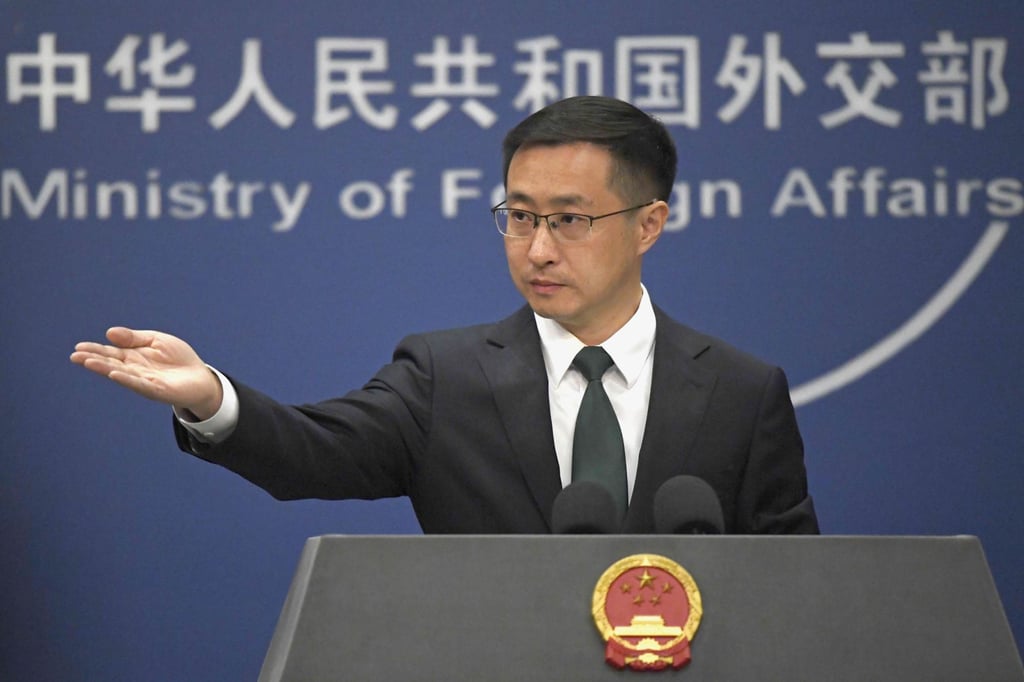US considers new curbs on China’s access to AI memory chips
Micron will be largely unaffected as the chip maker has held back from exporting its HBM products to China after Beijing banned its memory chips from critical infrastructure in 2023, the report said.
As such, major chip equipment manufacturers such as ASML and Tokyo Electron will not be affected. Shares in both companies surged following the news.
The rule, an expansion of what is known as the Foreign Direct Product rule, would bar about half a dozen Chinese semiconductor fabrication factories, or fabs, at the centre of China’s most sophisticated chip-making efforts from receiving exports from many countries, according to one of the sources.
Reuters could not determine which Chinese chip fabs would be impacted.
Containment and suppression cannot stop China’s development, but will only enhance China’s determination and ability to develop its scientific and technological self-reliance
“The US Department of Commerce is continually assessing the evolving threat environment and updating our export controls, as necessary, to protect US national security and safeguard our technological ecosystem,” a department spokesman said in a statement. “We remain committed to working closely with our allies who share our values.”
Asked about the impending export control package, Chinese foreign ministry spokesman Lin Jian said efforts by the US to “coerce other countries into suppressing China’s semiconductor industry” undermines global trade and hurts all parties.
Lin added that China hopes relevant countries would resist US efforts and safeguard their long-term interests.
“Containment and suppression cannot stop China’s development, but will only enhance China’s determination and ability to develop its scientific and technological self-reliance,” he said.
Aiming to impede supercomputing and AI breakthroughs that could benefit the Chinese military, the US imposed export controls on advanced chips and chip-making equipment for China in 2022 and 2023, restricting shipments from California-based companies such as Nvidia and Lam Research.
But Washington recognised that export controls agreed upon by several key countries were necessary and, last year, reached a deal for Japan and the Netherlands to also restrict semiconductor manufacturing tools to China. The three countries dominate the production of advanced chip-making equipment.

The new rule, currently in draft form, shows how Washington is seeking to keep up pressure on China’s burgeoning semiconductor industry without antagonising allies.
“They’re being cautious in using the rule because it makes our allies very uneasy,” said James Lewis, a researcher at the Centre for Strategic and International Studies in Washington. “There’s only so far you can push this without people jumping off the ship.”
“The US isn’t going to give up on restricting technology to China,” Lewis added. “The Europeans got a temporary pass. [Other] countries got a temporary pass.”
But the rule is “like a promise that we’ll keep coming back at this”, he said.
The Foreign Direct Product rule stipulates that if a product is made using American software or technology, the US government has the power to stop it from being sold – including products made in a foreign country.
The rule also was used in 2022 to cut China off from certain semiconductor chips made anywhere in the world.

As part of the latest export control package, the US plans to lower the amount of US content that determines when foreign items are subject to US control, sources said, adding that it closes a loophole in the Foreign Direct Product rule.
Equipment, for example, could be designated as falling under export controls simply because a chip containing US technology is incorporated into it, they said.
The US also plans to add about 120 Chinese entities to its restricted trade list, including the fabs that would be hit by the rule, plus toolmakers, providers of EDA (electronic design automation) software and related companies. Suppliers for entities on the list need to obtain licences to ship to them, which are likely to be denied.
The planned new rule is only in draft form and could change, but the aim is to publish it in some form next month, the sources said.
Aside from Japan, the Netherlands and South Korea, the draft rule exempts more than 30 other countries which are part of the same A: 5 group.
